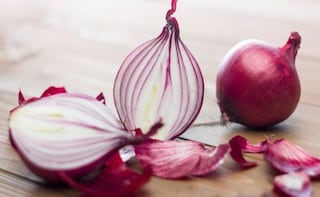Food wastage is certainly a grave issue but what about the items that we discard as garbage almost every day? The peels and skins of most fruits and veggies can easily be put to a range of use. From using them as a part of compost to cooking or making these a part of your beauty and wellness regime, if you put your mind to it, vegetable skins or fruit peels are not really meant to be discarded. Experts believe that veggies and fruits when eaten along with the skin are more nutritious and healthy. These contain essential micronutrients like fibre and antioxidants that aid in digestion and promote good health. However, your fruits and veggies must always be organic and fresh.While orange and lemon peels are quite popular in the world of cooking as well as in natural skin care, our research suggests ways in which even onion peels can put to good use. The dry and seemingly good-for-nothing onion peels have a bunch of health benefits. According to Dr. Mehmet CengizOz - a Turkish-American cardio-thoracic surgeon, professor at Columbia University and a well-known television personality - onion skins have more antioxidants as compared to the fruit. "It's also rich in quercetin - a flavonol that can reduce blood pressure and prevent arterial plaque that can cause stroke," he observes on his official website.
"Simmer onion skins in soups for additional flavor, and discard them before serving," according to Dr. Oz."Fruits or vegetable peels are packed with nutrients. It wouldn't be wrong to assume that onion skin also comes loaded with potent properties and health benefiting features. If you want to try adding peels and skins to your diet, your source should always be organic and not general grocery picked up from the nearest kirana store," concluded Shilpa Arora ND, a renowned Health Practitioner, Nutritionist and certified Macrobiotic Health Coach. Doing this could expose you and your family to the many pesticides and chemicals used these to make fruits and veggies look glossy these days. Pick your onions from a reliable organic-source and use the peels for an added dose of nutrition!
Advertisement
"Simmer onion skins in soups for additional flavor, and discard them before serving," according to Dr. Oz."Fruits or vegetable peels are packed with nutrients. It wouldn't be wrong to assume that onion skin also comes loaded with potent properties and health benefiting features. If you want to try adding peels and skins to your diet, your source should always be organic and not general grocery picked up from the nearest kirana store," concluded Shilpa Arora ND, a renowned Health Practitioner, Nutritionist and certified Macrobiotic Health Coach. Doing this could expose you and your family to the many pesticides and chemicals used these to make fruits and veggies look glossy these days. Pick your onions from a reliable organic-source and use the peels for an added dose of nutrition!
Advertisement
For the latest food news, health tips and recipes, like us on Facebook or follow us on Twitter and YouTube.
Advertisement
